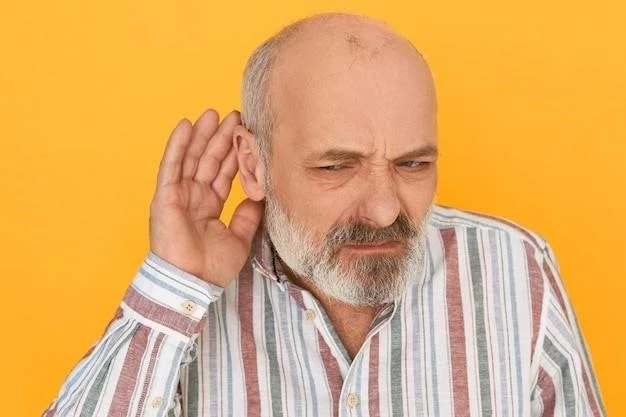Introduction to Sensorineural Hearing Loss
Sensorineural hearing loss, or SNHL, is a common type of permanent hearing loss caused by damage to the inner ear or auditory nerve. Learn more about this condition and its effects.
Definition and Causes
Sensorineural hearing loss, also known as SNHL, is characterized by damage to the hair cells in the inner ear, auditory nerve, or central processing centers in the brain. Common causes include exposure to loud noises, aging, genetic factors, head or ear injuries, and certain medications. Understanding the root causes of SNHL is crucial for prevention and management.
Symptoms and Diagnosis
Recognize sensorineural hearing loss by symptoms like difficulty hearing conversations, ringing in the ears, and muffled speech. Diagnostic tests may include audiometric evaluations and imaging studies.
Recognizing Sensorineural Hearing Loss
Sensorineural hearing loss is characterized by difficulties in understanding speech, hearing faint sounds, and experiencing a feeling of fullness in the ear. If you notice these symptoms, it’s essential to seek a professional evaluation for proper diagnosis and treatment.
Diagnostic Tests
Diagnostic tests for sensorineural hearing loss may include audiometric evaluations, such as pure-tone audiometry and speech audiometry, to assess hearing thresholds and speech recognition. Additionally, imaging studies like MRI or CT scans can help identify any structural abnormalities in the inner ear or auditory nerve. Seeking a professional evaluation and undergoing these tests is essential for accurate diagnosis and appropriate treatment.
Types of Sensorineural Hearing Loss
Understand the various forms of sensorineural hearing loss. It can manifest as gradual or sudden, affecting one or both ears differently. Seek professional evaluation for accurate diagnosis and treatment.
Gradual Onset vs. Sudden Sensorineural Hearing Loss
Sensorineural hearing loss can develop gradually, impacting one or both ears over time, or occur suddenly within a short period. Differentiating between these types is important for appropriate treatment and management of the condition. Seek medical advice if you notice any changes in your hearing.
Asymmetrical and Bilateral Progressive Hearing Loss
Sensorineural hearing loss can present as asymmetrical, affecting both ears with varying degrees of severity. Bilateral progressive hearing loss occurs gradually in both ears over time. Understanding the distinctions between these types is crucial for appropriate management. Seek professional evaluation for accurate diagnosis and personalized treatment options.
Seek treatment for sensorineural hearing loss including hearing aids or cochlear implants. Consult with an audiologist for personalized solutions to manage your condition effectively.
Treatment Options
Explore treatment options for sensorineural hearing loss, such as hearing aids or cochlear implants. These interventions can significantly improve your hearing and overall quality of life. Consult with a healthcare professional to determine the most suitable treatment plan for your specific condition.
Cochlear Implants
Consider cochlear implants as a treatment option for severe sensorineural hearing loss. These surgically implanted devices can enhance hearing by directly stimulating the auditory nerve. Consult with a specialist to determine if cochlear implants are suitable for your condition.
Prevention and Management
Protect your hearing from damage by avoiding loud noises and using ear protection when necessary. Learn coping strategies to adapt to living with sensorineural hearing loss effectively.
Protecting Your Hearing
Prevent sensorineural hearing loss by avoiding exposure to loud noises, wearing ear protection in noisy environments, and maintaining ear hygiene. These simple measures can help preserve your hearing health and prevent potential damage.
Coping Strategies for Living with Sensorineural Hearing Loss
Adjusting to life with sensorineural hearing loss can be challenging. Consider communication tactics, lip-reading, and assistive devices to enhance hearing. Join support groups or seek counseling for emotional well-being.
Learn about the different causes of sensorineural hearing loss, including aging, genetic factors, head injuries, loud noise exposure, medications, and viral infections. Understanding these causes can help in prevention and early management.
Aging and Presbycusis
As we age, the risk of developing sensorineural hearing loss increases. Presbycusis, or age-related hearing loss, is a common condition that affects the elderly population. Understanding the impact of aging on hearing health is essential for early detection and management of age-related hearing loss.
Causes of Sensorineural Hearing Loss
Genetic factors play a significant role in sensorineural hearing loss, leading to inherited conditions that affect hearing. Understanding the genetic component of hearing loss is crucial for early detection and appropriate management. Consult with a genetic counselor or healthcare provider for personalized guidance.
Impact of Loud Noise and Trauma
Loud noises and traumatic events can lead to sensorineural hearing loss by damaging the delicate structures in the inner ear or affecting the auditory nerve. It is crucial to protect your ears from excessive noise exposure and seek prompt medical attention if you experience any sudden hearing changes due to trauma.

Medications and Viral Infections
Medications and viral infections can contribute to sensorineural hearing loss by damaging the delicate structures in the inner ear or affecting the auditory nerve. It is crucial to be cautious with medications that may harm your hearing and seek medical attention if you suspect a viral infection may be impacting your hearing health.
Autoimmune Conditions and Sensorineural Hearing Loss
Autoimmune conditions can lead to sensorineural hearing loss by causing the body’s immune system to attack healthy cells in the inner ear. Understanding the association between autoimmune disorders and hearing loss is crucial for proper diagnosis and management. Consult with a healthcare provider to address any autoimmune-related hearing issues effectively.
Inner Ear Damage and Nerve Pathways
Sensorineural hearing loss is often the result of damage to the inner ear or the auditory nerve pathways. Degradation of hair cells or nerve endings within the cochlea can lead to difficulties in hearing. Understanding the impact of inner ear damage on nerve pathways is essential for appropriate management and treatment of sensorineural hearing loss. Consult with a healthcare professional for personalized guidance.

Permanent Nature of Sensorineural Hearing Loss
Sensorineural hearing loss is typically permanent, as it often involves damage to the inner ear structures or auditory nerve pathways. Understanding the irreversible nature of this condition is essential for individuals affected to seek appropriate management strategies and interventions for improved quality of life.
Sensorineural Hearing Loss in Different Age Groups
Sensorineural hearing loss can affect individuals of all age groups, with various factors contributing to its onset. Understanding how this type of hearing loss manifests in different age demographics can help tailor treatment and management approaches effectively. Consult with healthcare professionals to address specific needs based on age-related considerations.
Sensorineural Hearing Loss in Children
Sensorineural hearing loss can affect children and may have various causes, such as genetic factors, infections, or head trauma. Early detection through hearing screenings is crucial for appropriate intervention and support tailored to the child’s needs. Parents should seek prompt evaluation by pediatric audiologists if they suspect any hearing concerns in their children.
Sensorineural Hearing Loss in Adults
While sensorineural hearing loss is common in adults, it can be caused by various factors like aging, noise exposure, genetic predisposition, or certain medications. It’s essential for adults experiencing hearing difficulties to undergo comprehensive evaluations and explore suitable treatment options for improved hearing health and quality of life.
Research and Future Developments
Ongoing research in the field of sensorineural hearing loss focuses on innovative treatments like gene therapy, regenerative medicine, and improved hearing aid technology. Participation in clinical trials and staying informed about emerging advancements can offer hope for individuals with this condition. Stay informed about new developments and consult with healthcare professionals for personalized care options.
